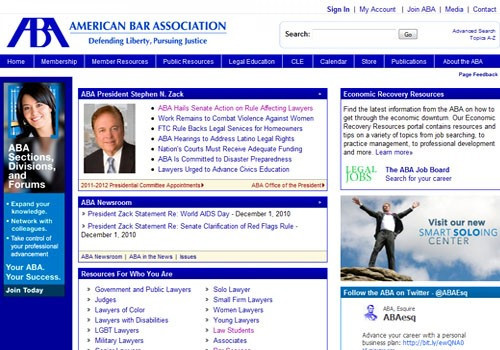ABA delays decision on accreditation of foreign law schools

The council of the American Bar Association's (ABA) Section of Legal Education and Admissions to the Bar is delaying on deciding whether to accredit foreign law schools because the matter needs more study.
The council voted unanimously on Saturday for a complete vetting of the issue in a meeting held at the Bayfront Hilton in San Diego. It has not set any time limit for completion of the study.
A conclusion will be made for the accreditation of any particular foreign school after broader study by the council. In June of 2008, the Peking University of Transnational Law, the first foreign law school from China, had intention to get accreditation from the ABA.
In general, most of the states in United States require bar applicants to have graduated from ABA-accredited law schools.
In August, the council's Special Committee on Foreign Law Schools Seeking Approval Under ABA Standards had made some recommendations to the council's Accreditation Project, a body that determines whether foreign law schools that meet the ABA standards should be accredited.
According to the recommendations of the committee,
* The council should authorize the Accreditation Project to go forward with considering the accreditation of law schools outside the U.S. borders that meet all of the standards laid down by the ABA for the policy considerations.
* The council should request the Standards Review Committee in its ongoing comprehensive review to look at all the standards to ensure that none of them unintentionally sets up barriers to this geographic expansion and to remove any such barriers that do not implicate the substantive standards ensuring a quality legal education.
* The council should consider drafting a policy statement to clarify the matters highlighted some concerns and the need for special rules that deal with the underlying assumptions in the current standards, such as that the curriculum is primarily focused on U.S. law, the instruction is primarily in English, and the faculty are primarily J.D. graduates of ABA approved law schools.
* If the council agrees with the preceding recommendations, recognizing that it is very difficult to consider in a vacuum all the issues that may arise when the Section has not before entered this arena, the Council should consider whether it might be advisable to allow a site visit on a trial basis of a foreign applicant school that wants to see whether it can meet all the standards.
The committee also warned that if accreditation is not granted to foreign law schools, pressures to find other routes to U.S. licensure will continue to increase and it will result in forcing states to make decisions on which foreign-trained individuals could sit for the bar exam and ...some states undoubtedly will authorize lawyers to enter the U.S. legal profession with weaker and less reliable training than is provided in ABA approved law schools.
If any changes are made in the state standards for the evaluation of educational credentials, it could also result in more pressure on bar examiners to raise bar-passage requirements since the bar exam will be the primary means to ensure minimal quality and this will have adverse consequences for the graduates of many U.S. law schools as well, the committee said.
The report also acknowledged a potential negative effect on U.S. lawyers. If graduates of ABA-accredited foreign law schools be allowed to sit for domestic bar examinations, it would mean more competition for U.S. attorneys in a tight job market. Moreover, if the foreign law school is government-sponsored, it could create political problems potentially with the Department of State.
© Copyright IBTimes 2025. All rights reserved.





















